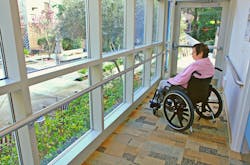A study led by the University of Eastern Finland found that better physical condition and higher daily activity predicted lower levels of fatigue in patients with relapsing-remitting multiple sclerosis, RRMS. A lower disability rate was also associated with less fatigue. The study was published in the prestigious journal Multiple Sclerosis and Related Disorders.
The study used a wide range of different measurement methods, measuring physical activity with an accelerometer and measuring fatigue with two different meters (MFIS and FSS), and mapping disability using two different methods (EDSS and MSFC), including different physical performance tests.
Patients whose level of disability as assessed by the EDSS was at the level of 0–2.5, i.e., moderately low, were found to have a higher level of fatigue than healthy controls, but lower than patients whose level of disability was higher (EDSS 3-5.5). A significant relationship was found between fatigue and disability, and between daily physical activity and fatigue. A lower disability rate, better physical condition and higher daily activity predicted lower fatigue levels.

